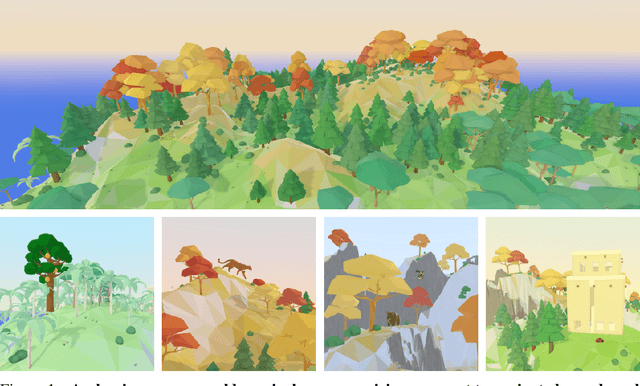Kanjun Qiu
Tune As You Scale: Hyperparameter Optimization For Compute Efficient Training
Jun 13, 2023Abstract:Hyperparameter tuning of deep learning models can lead to order-of-magnitude performance gains for the same amount of compute. Despite this, systematic tuning is uncommon, particularly for large models, which are expensive to evaluate and tend to have many hyperparameters, necessitating difficult judgment calls about tradeoffs, budgets, and search bounds. To address these issues and propose a practical method for robustly tuning large models, we present Cost-Aware Pareto Region Bayesian Search (CARBS), a Bayesian optimization algorithm that performs local search around the performance-cost Pareto frontier. CARBS does well even in unbounded search spaces with many hyperparameters, learns scaling relationships so that it can tune models even as they are scaled up, and automates much of the "black magic" of tuning. Among our results, we effectively solve the entire ProcGen benchmark just by tuning a simple baseline (PPO, as provided in the original ProcGen paper). We also reproduce the model size vs. training tokens scaling result from the Chinchilla project (Hoffmann et al. 2022), while simultaneously discovering scaling laws for every other hyperparameter, via an easy automated process that uses significantly less compute and is applicable to any deep learning problem (not just language models).
Avalon: A Benchmark for RL Generalization Using Procedurally Generated Worlds
Oct 24, 2022



Abstract:Despite impressive successes, deep reinforcement learning (RL) systems still fall short of human performance on generalization to new tasks and environments that differ from their training. As a benchmark tailored for studying RL generalization, we introduce Avalon, a set of tasks in which embodied agents in highly diverse procedural 3D worlds must survive by navigating terrain, hunting or gathering food, and avoiding hazards. Avalon is unique among existing RL benchmarks in that the reward function, world dynamics, and action space are the same for every task, with tasks differentiated solely by altering the environment; its 20 tasks, ranging in complexity from eat and throw to hunt and navigate, each create worlds in which the agent must perform specific skills in order to survive. This setup enables investigations of generalization within tasks, between tasks, and to compositional tasks that require combining skills learned from previous tasks. Avalon includes a highly efficient simulator, a library of baselines, and a benchmark with scoring metrics evaluated against hundreds of hours of human performance, all of which are open-source and publicly available. We find that standard RL baselines make progress on most tasks but are still far from human performance, suggesting Avalon is challenging enough to advance the quest for generalizable RL.
 Add to Chrome
Add to Chrome Add to Firefox
Add to Firefox Add to Edge
Add to Edge